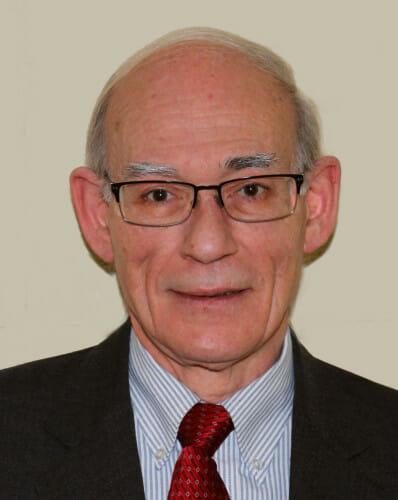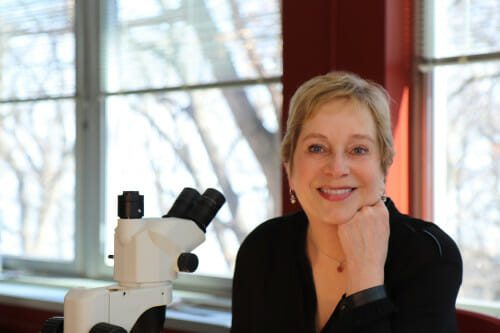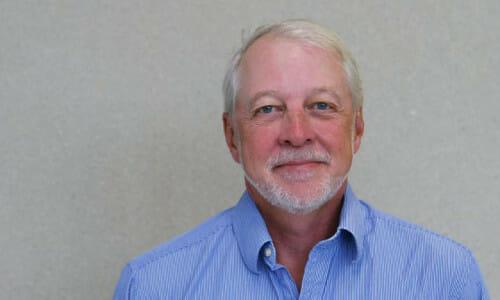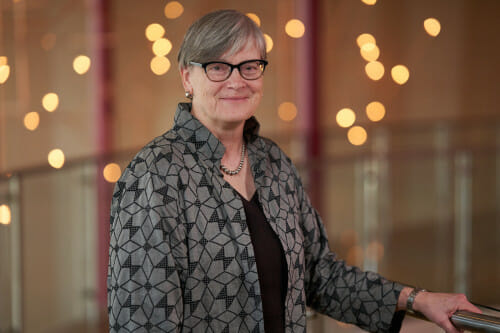Meet the 2023 Hilldale Award Winners
Each year, the secretary of the faculty honors four University of Wisconsin–Madison faculty members with the Hilldale Award to recognize their contributions to teaching, research and service.
Faculty members representing the arts and humanities, social sciences, physical sciences and biological sciences are selected from nominations by department chairs. The winners will be awarded $7,500 and recognized at the April 3 Faculty Senate meeting.
This year’s Hilldale Award winners are John H. Perepezko, Sissel Schroeder, Paul Lambert and Susan Cook.
John H. Perepezko
IBM-Bascom Professor of Materials Science and Engineering in the College of Engineering

John Perepezko
Perepezko is a renowned innovator whose accomplishments in making the design of materials more cost- and energy-efficient have made a tremendous impact. He has spent his career studying the microstructures of materials to better understand their properties and how they can be expected to perform in products. His patented technologies at UW–Madison have been licensed to some of the biggest names in the semiconductor industry. The pervasive use of ultra-high-density computer microprocessors and jet engine turbine blades is in large part due to his fundamental discoveries.
In addition to being committed to interdisciplinary and innovative research since the beginning of his career, Perepezko has won national awards for his outstanding teaching. He has taught 10 undergraduate and graduate courses in materials science and engineering, several of which he developed. Over the past 40 years, he has continued to update these courses to integrate more interactive opportunities and enhance student engagement. International lectures and visiting professorships have enabled him to share his passion with students beyond UW–Madison. Outside of the classroom, he actively promotes professional opportunities for materials science and engineering undergraduates.
“Perepezko has taken a critical role in advancements in materials science and developing technology worldwide that will be even more important in the future,” says chair of materials science and engineering Izabela Szlufarska. “Based on his pioneering research contributions, his dedication to teaching, and loyalty to the University of Wisconsin, he fully deserves the honor of a Hilldale Award.”
Sissel Schroeder
Professor of Anthropology in the College of Letters and Sciences

Sissel Schroeder
As a leading archaeologist in the region, Schroeder studies the interactions between ecological change and sociopolitical organization among ancient societies in what is now known as the American Midwest. By studying sites in Wisconsin, Illinois and Kentucky, she investigates how ancient societies changed the landscape around them as well as how ecologies affected their ways of life and social inequality. For many years she has worked closely with Wisconsin’s Native nations on projects like the statewide Wisconsin Dugout Canoe Survey Project, and her conscientious work goes above and beyond the letter of the Native American Graves and Repatriation Act.
Schroeder has been recognized as a dynamic and engaging teacher by colleagues and students alike and was honored with the Chancellor’s Distinguished Teaching Award in 2014. She is dedicated to furthering undergraduate research, as evidenced by the numerous opportunities she offers for students to gain hands-on professional training and research experience through several archaeological field schools and projects in her lab. In her role on the Wisconsin Historic Preservation Review Board, a position she was appointed to by three Wisconsin governors, she has also led extensive outreach efforts that speak to audiences of all ages across the state.
“Professor Schroeder is a wonderful citizen and quiet leader in our department, our university, our state and her discipline,” says anthropology chair Claire Wendland. “She seeks through her distinguished scholarship to better understand the deep prehistory of our state and region, works to extend the reach of our great university to the public — from kindergartners to legislators — and to forge strong bonds with Wisconsin’s tribal communities.”
Paul Lambert
Howard M. Temin Professor of Oncology in the School of Medicine and Public Health

Paul Lambert
Human papillomavirus (HPV) is the most common sexually transmitted disease and in some cases, the virus can lead to the development of tumors. This intersection of virology and oncology is where Paul Lambert, a world leader in DNA tumor virus research, focuses his work. His research program pioneers far-reaching, fundamental studies of cancer biology and bridges the gap between those findings and clinical investigation. His studies identified major requirements for HPV-induced tumor development and are providing strong foundations for controlling these and other cancers.
As director of the McArdle Laboratory for Cancer Research, Lambert not only guides his own research group but also supports faculty, students and staff as they pursue their own research projects. He has also served as a leader of the virology program at the UW Carbone Cancer Center and is the chair of the department of oncology in the School of Medicine and Public Health. In the classroom, Lambert has shaped the minds of undergraduate and graduate students through courses ranging across virology, medical genetics, research ethics and more.
Beyond the university, Lambert serves on many high-impact advisory boards, such as the U.S. National Cancer Institute Board of Scientific Counselors, multiple World Health Organization committees and the Australian Cancer Research Foundation medical advisory committee.
“Paul Lambert is a remarkable faculty colleague: an exceptional, universally hailed researcher, a generous mentor and a leader with a nearly unbelievable number of productive roles steering research, teaching and administration,” says Wei Xu, the chair of the McArdle Laboratory for Cancer Research Awards Committee. “Paul is exactly the type of faculty member who should be recognized with the Hilldale Award.”
Susan Cook
Professor of Musicology in the Mead Witter School of Music in the College of Letters and Science

Susan Cook
Whether by revising and expanding course offerings to best serve students, stepping up to serve in leadership roles, or investigating the complicated intersections of society and music in her own research, Cook’s forward-thinking spirit has ensured that growth continues to be a priority within the Mead Witter School of Music.
Since coming to UW–Madison in 1991 to teach contemporary music, Cook has not only taught and created several undergraduate and graduate courses but has spent the last ten years as the Pamela O. Hamel/Music Board of Advisors Director of the School of Music. During that time, she raised substantial funds to carry out the Hamel Music Center building project and establish four new professorships.
She has also been at the forefront of teaching innovation. With an eye toward expanding the traditional canon, she expanded the core survey course to include a wider variety of musical repertories and added a groundbreaking course on gender and music. She is committed to mentorship of students and faculty alike and is especially dedicated to including and supporting those traditionally marginalized by academia. Her efforts were recognized with the Slesinger Award for Excellence in Mentoring in 2022.
Amid the demanding schedule of being a professor and administrator, Cook also makes considerable research contributions as she analyzes the relationships between gender, race, class, popular music and dance.
“Cook has had a career distinguished in all three dimensions of the fully-realized faculty member: teaching, research, and service,” says Martha Fischer, associate director of the school of music. “Her contributions in the three areas have been leading-edge, generous of spirit and time, and broadly and deeply impactful. I can truly think of no more deserving recipient of the Hilldale Award.”



